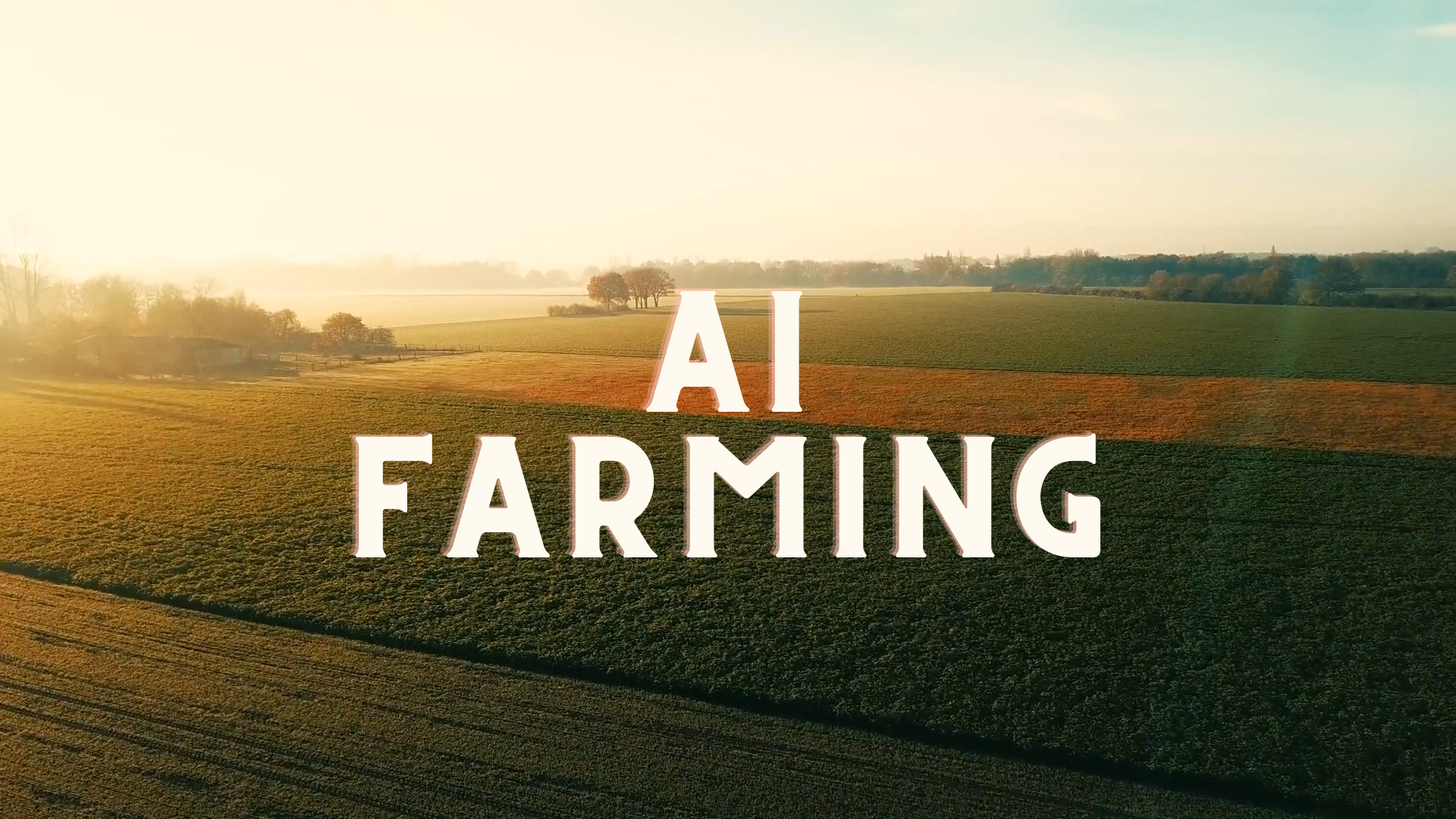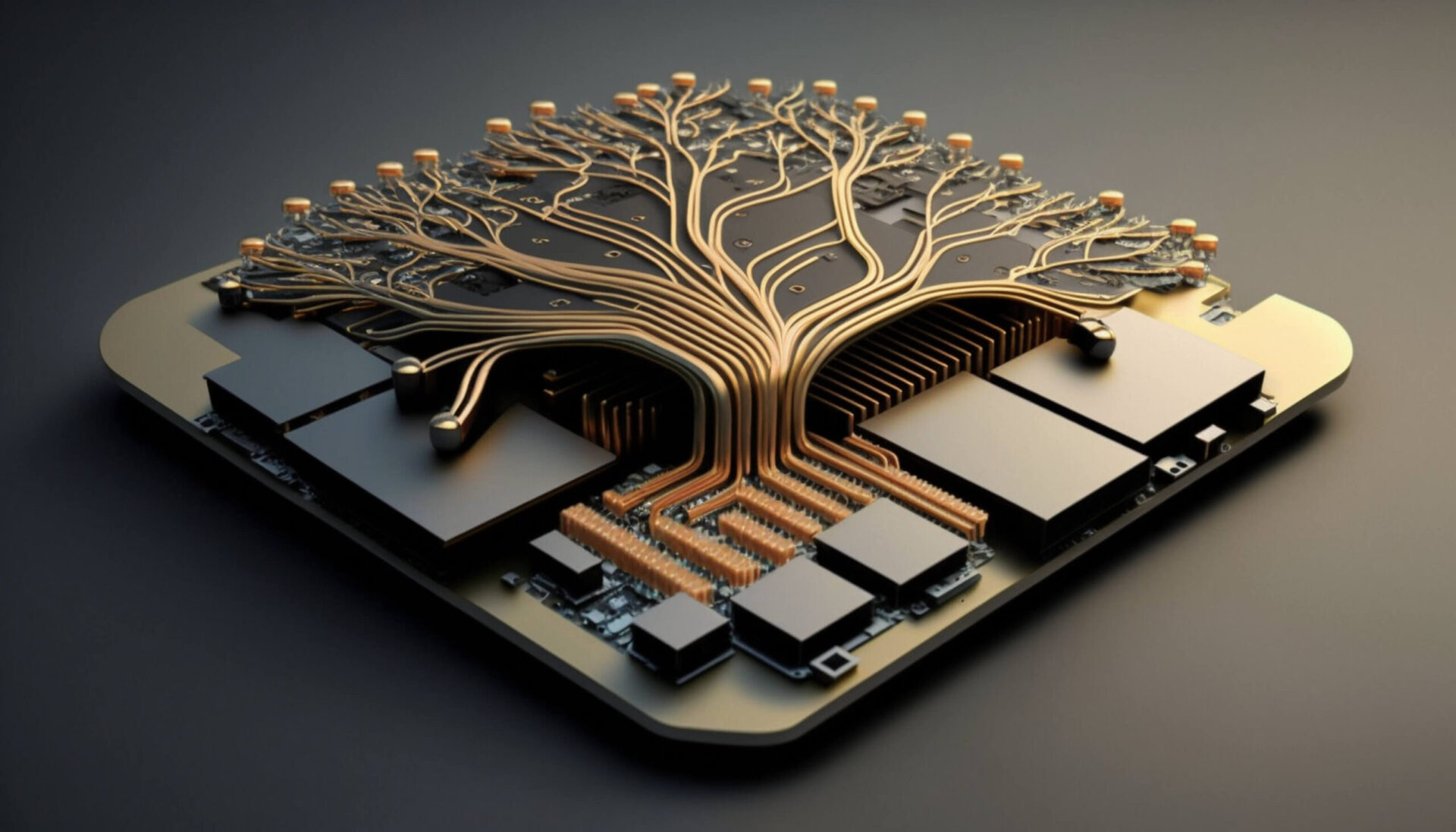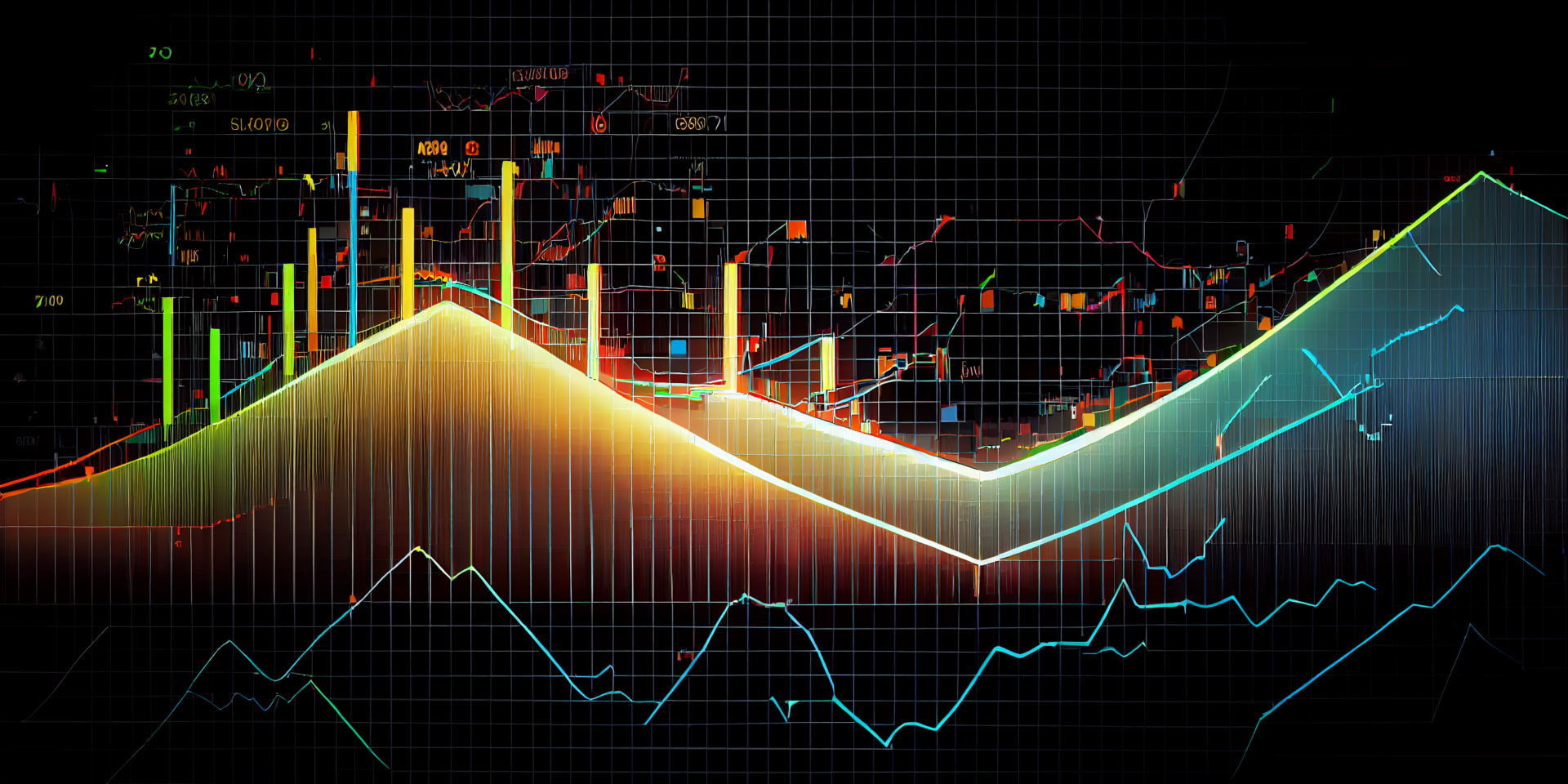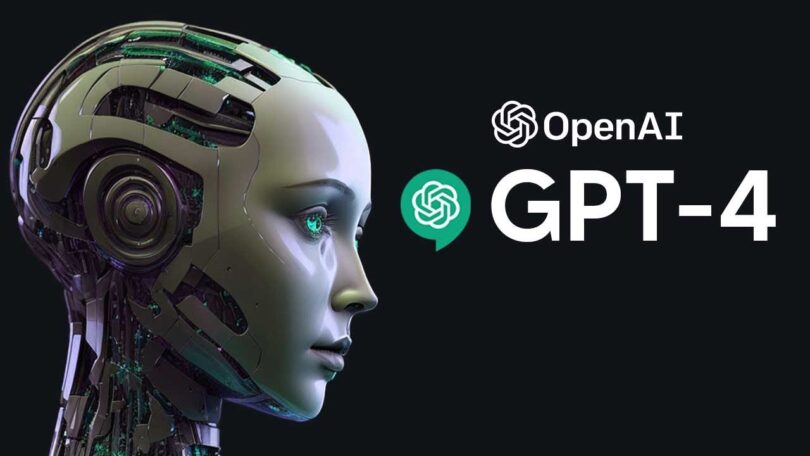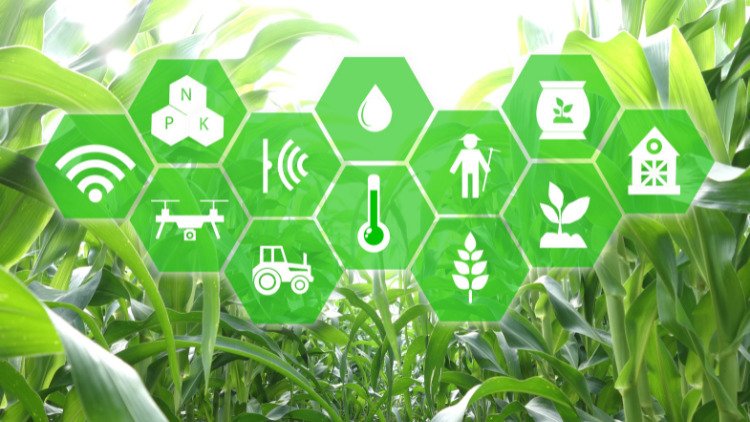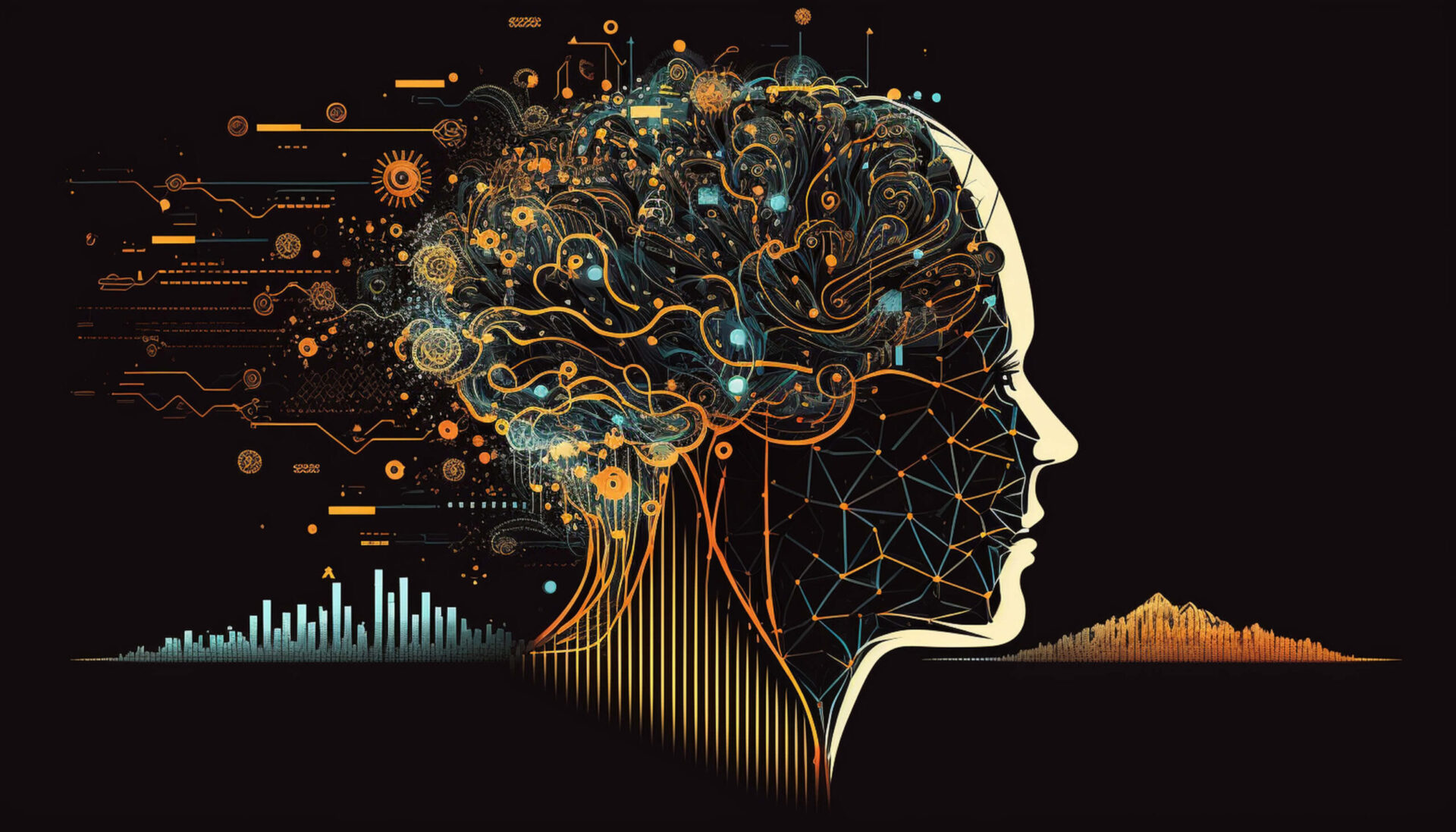AI Farming, the integration of Artificial Intelligence (AI) in agriculture, is revolutionizing the way we cultivate crops, raise livestock, and manage farming operations. With advancements in technology, AI has emerged as a game-changer, offering innovative solutions to address the challenges faced by the agricultural industry. In this blog post, we will explore the vast potential of AI in farming, its benefits, and how it is reshaping the future of agriculture.
The Role of AI in Agriculture
AI plays a pivotal role in agriculture, enabling farmers to make data-driven decisions, optimize resource usage, and improve productivity. Through sophisticated algorithms, AI can analyze vast amounts of data collected from sensors, satellites, and other sources to provide valuable insights and predictions for crop management, disease detection, and yield optimization.
Benefits of AI Farming
- Enhanced Crop Monitoring: AI-based systems enable real-time monitoring of crop health, water levels, and nutrient requirements, allowing farmers to take proactive measures for optimal growth and yield.
- Precision Agriculture: AI technologies enable precise application of fertilizers, pesticides, and water, reducing waste and environmental impact while maximizing crop production.
- Increased Efficiency: Automated systems powered by AI streamline farming operations, such as planting, harvesting, and sorting, leading to improved efficiency and reduced labor costs.
Challenges of AI Farming
While the benefits of AI in agriculture are immense, there are challenges that need to be addressed. These include data privacy and security concerns, the need for infrastructure and technical expertise, and potential ethical implications. It is crucial to develop robust frameworks and regulations to ensure responsible and ethical use of AI in farming.
Crop Monitoring and Disease Detection using AI
AI technologies are transforming crop monitoring and disease detection in agriculture. Through computer vision and machine learning algorithms, AI can analyze images of plants to identify diseases, pests, nutrient deficiencies, and other issues. Early detection allows farmers to take timely actions, preventing the spread of diseases and minimizing crop losses.
Precision Agriculture and Smart Irrigation Systems
Precision agriculture, facilitated by AI, optimizes the use of resources like water, fertilizers, and energy. AI-powered smart irrigation systems utilize data from sensors, weather forecasts, and soil moisture levels to deliver precise amounts of water where and when needed. This technology conserves water, minimizes water runoff, and promotes sustainable farming practices.
AI-enabled Crop Yield Prediction
Accurate prediction of crop yield is essential for planning harvests, managing logistics, and making informed marketing decisions. AI algorithms analyze historical data, weather patterns, soil conditions, and other factors to forecast crop yield. This empowers farmers and agribusinesses to optimize their operations, minimize wastage, and meet market demands efficiently.
Automation and Robotics in Agriculture
AI-driven automation and robotics are revolutionizing farming practices by reducing human labor, increasing efficiency, and improving safety. Robots equipped with AI can perform tasks such as planting, weeding, harvesting, and sorting, with precision and speed. This enables farmers to streamline operations, reduce costs, and enhance overall productivity.
AI-assisted Harvesting and Sorting
AI technologies are transforming the harvesting and sorting process in agriculture. Computer vision algorithms, combined with robotics, can identify and harvest ripe crops with precision, minimizing wastage. AI-powered sorting systems classify harvested produce based on size, quality, and other criteria, ensuring consistency and optimizing market value.
Drones and AI for Crop Scouting and Monitoring
Drones equipped with AI algorithms provide valuable data for crop scouting and monitoring. They can capture high-resolution aerial imagery, detect plant stress, identify areas of nutrient deficiency, and even track crop growth. This data helps farmers make informed decisions regarding irrigation, fertilization, and pest control, leading to improved crop health and higher yields.
Data Collection and Management in AI Farming
Data collection and management are critical for effective implementation of AI in farming. AI systems rely on diverse data sources, including satellite imagery, weather data, and historical farm records. Efficient data collection, storage, and analysis ensure the accuracy and reliability of AI models, enabling farmers to make informed decisions and optimize their farming practices.
Machine Learning for Soil Analysis and Fertilizer Optimization
AI-driven machine learning algorithms are transforming soil analysis and fertilizer optimization. By analyzing soil composition, nutrient levels, and historical crop data, AI models can recommend tailored fertilizer formulations, ensuring optimal nutrient uptake by plants. This approach minimizes fertilizer waste and reduces environmental impact while maximizing crop productivity.
Predictive Analytics for Weather Forecasting in Agriculture
Accurate weather forecasting is crucial for effective farm management. AI-based predictive analytics models leverage historical weather data, satellite imagery, and atmospheric patterns to forecast weather conditions. This helps farmers plan their activities, optimize irrigation schedules, protect crops from extreme weather events, and mitigate potential risks.
AI Applications in Livestock Monitoring and Health Management
AI technologies are revolutionizing livestock farming by enabling real-time monitoring and health management. IoT sensors and AI algorithms can track animal behavior, detect signs of distress or illness, and provide early warnings to farmers. This allows prompt intervention, minimizing disease outbreaks, improving animal welfare, and maximizing productivity.
Automated Feeding and Nutrition Optimization using AI
AI-powered automated feeding systems are transforming livestock farming by optimizing feed formulation and delivery. By analyzing animal data, nutritional requirements, and growth patterns, AI models can create personalized feeding plans for each animal. This ensures optimal nutrition, improves feed efficiency, and reduces costs while maintaining animal health and well-being.
AI-based Livestock Behavior Analysis
AI enables the analysis of livestock behavior patterns to enhance farming practices. By using computer vision and machine learning, AI can detect anomalies, monitor feeding and grazing patterns, and predict behavior changes. This helps farmers detect stress, improve animal welfare, and make informed decisions regarding herd management and breeding programs.
Sustainable Farming Practices and AI Integration
AI integration in agriculture promotes sustainable farming practices. AI enables efficient resource management, precision application of inputs, and proactive monitoring of environmental indicators. By minimizing waste, optimizing resource usage, and reducing environmental impact, AI farming contributes to long-term sustainability and resilience in the agricultural sector.
AI-driven Pest and Weed Management
AI technologies play a crucial role in pest and weed management in agriculture. Through image recognition and machine learning, AI systems can identify and classify pests and weeds, enabling targeted and precise control measures. This reduces reliance on chemical pesticides, promotes ecological balance, and enhances crop health and productivity.
AI-assisted Supply Chain Optimization in Agriculture
AI streamlines supply chain processes in agriculture, from farm to consumer. AI-driven algorithms optimize logistics, inventory management, and demand forecasting, ensuring efficient distribution, reduced food waste, and improved customer satisfaction. AI's integration across the supply chain enhances transparency, traceability, and overall operational efficiency.
Ethical Implications of AI in Agriculture
The rapid adoption of AI in agriculture raises ethical considerations. It is crucial to address issues related to data privacy, algorithm bias, and the impact on rural communities. Stakeholders must ensure that AI technologies are deployed responsibly, with transparency, fairness, and inclusivity, to avoid unintended consequences and promote ethical farming practices.
Privacy and Data Security in AI Farming
The collection and utilization of data in AI farming require robust privacy and data security measures. It is essential to safeguard sensitive farm data, protect against cyber threats, and ensure compliance with data protection regulations. By prioritizing privacy and data security, farmers can confidently embrace AI technologies and leverage their full potential.
Regulatory Framework and Policies for AI Farming
The adoption of AI in agriculture necessitates the development of appropriate regulatory frameworks and policies. Governments and agricultural organizations must collaborate to establish guidelines for responsible AI use, address liability issues, and ensure that AI benefits all stakeholders, including small-scale farmers. Clear regulations foster trust, encourage innovation, and support the sustainable growth of AI farming.
Emerging Technologies in AI Farming
The field of AI farming continues to evolve, driven by emerging technologies. These include blockchain for transparent supply chains, edge computing for real-time data analysis, and edge AI devices for on-farm decision-making. Exploring and adopting these technologies opens new possibilities for sustainable, efficient, and resilient agricultural systems.
Potential Challenges and Limitations of AI in Agriculture
While AI holds immense potential, there are challenges and limitations that need to be addressed. These include high implementation costs, limited access to technology in rural areas, potential job displacement, and the need for continuous training and skill development. Overcoming these challenges requires collaboration, investment, and supportive policies.
Future Directions and Opportunities in AI Farming
The future of AI farming is promising, with numerous opportunities for innovation and growth. Advancements in AI, machine learning, robotics, and IoT will continue to reshape agriculture, leading to increased productivity, sustainable practices, and improved livelihoods. Embracing AI technologies and fostering collaboration between farmers, researchers, and industry stakeholders will drive the industry forward.
Conclusion
AI farming is revolutionizing the agricultural landscape, offering transformative solutions to address the challenges faced by the industry. From precision agriculture and automated systems to data-driven decision-making and sustainable practices, AI is unlocking new possibilities for increased productivity, efficiency, and sustainability. By embracing AI technologies responsibly, farmers can navigate the future of agriculture with confidence, ensuring food security, environmental stewardship, and economic viability for generations to come.
If you're passionate about the future of agriculture and want to learn more about AI farming, consider enrolling in the comprehensive course, "AI Farming: Unleashing the Future of Agriculture!" This course covers a wide range of topics, from the role of AI in agriculture to the implementation of AI technologies in crop management, livestock farming, supply chain optimization, and more. With engaging lectures, practical assignments, and hands-on projects, you'll gain the knowledge and skills needed to leverage AI in farming practices and contribute to the advancement of sustainable and efficient agriculture. Don't miss this opportunity to be at the forefront of agricultural innovation. Enroll in the "AI Farming" course today and join a community of learners dedicated to shaping the future of agriculture.


